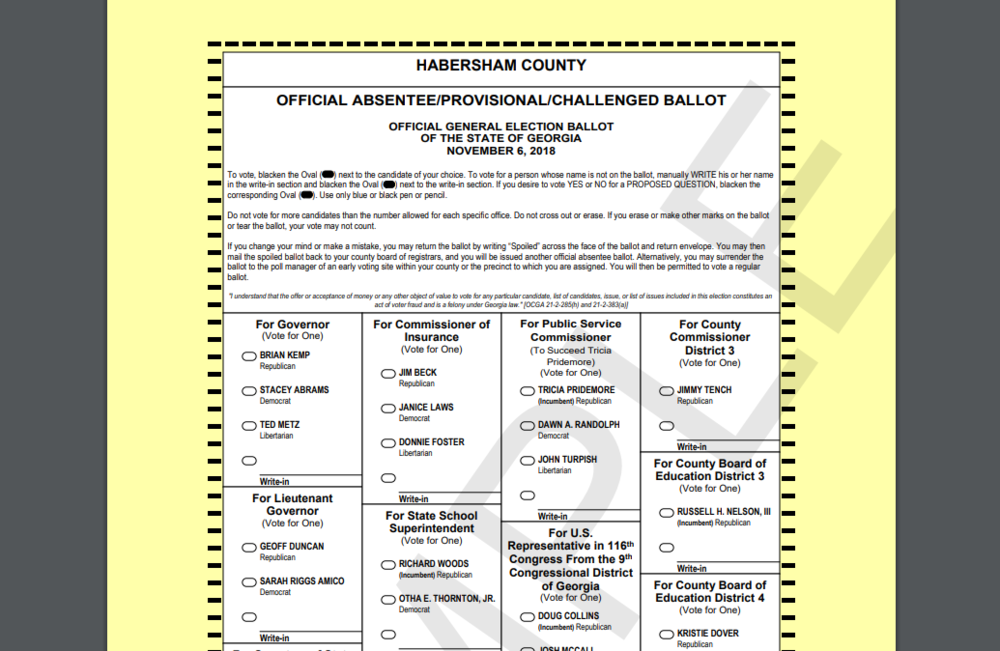Section Branding
Header Content
How Do Georgia's Absentee Ballots Work?
Primary Content
In-person early voting for the Nov. 6 election is underway, but many more Georgians are also choosing to vote using an absentee by mail ballot. More than 200,000 voters have requested an absentee ballot as of Oct. 17.
GPB's Stephen Fowler reports on the absentee voting process
HOW TO REQUEST AN ABSENTEE MAIL-IN BALLOT
In Georgia, you don’t need a reason to request an absentee ballot, you just have to apply with your county by the Friday before Election Day. For the Nov. 6 midterm election, that’s Nov. 2.
On the Secretary of State’s website, you can see the absentee ballot form (http://sos.ga.gov/index.php/Elections/absentee_voting_in_georgia) and find your local county Board of Registrar’s Office.
If your form is filled out completely and accurately, your county will send you an envelope containing your ballot, an envelope marked “official absentee ballot” and a larger envelope for you to sign and send back to have the ballot processed.
HOW TO RETURN AN ABSENTEE MAIL-IN BALLOT
Once you make your selections, you must follow instructions on the return envelope exactly, and sign an oath with things like your name, address and the year you were born.
Otherwise, your ballot could be rejected.
Here’s what Georgia state law (O.C.G.A. § 21-2-386) has to say:
(C) If the elector has failed to sign the oath, or if the signature does not appear to be valid, or if the elector has failed to furnish required information or information so furnished does not conform with that on file in the registrar's or clerk's office, or if the elector is otherwise found disqualified to vote, the registrar or clerk shall write across the face of the envelope "Rejected," giving the reason therefor. The board of registrars or absentee ballot clerk shall promptly notify the elector of such rejection, a copy of which notification shall be retained in the files of the board of registrars or absentee ballot clerk for at least two years.
According to data from the secretary of state’s office, the most common reason a ballot is rejected this election cycle is for “insufficient oath information.”
Two lawsuits have been filed this week challenging different parts of Georgia’s absentee ballot voting and counting process – one alleging certain counties are rejecting ballots at a higher rate because of minor errors, and another saying voters with ballots rejected for a mismatched signature need to be given “due process” in their reviews.
Have you encountered problems voting during the elections? Send us a tip here or text VOTE to 81380.


